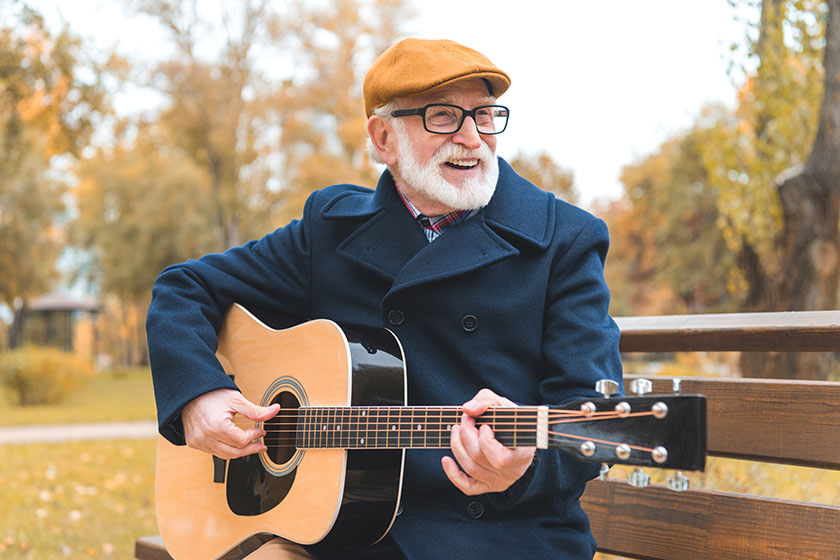Suppose your loved ones are planning to move into a senior living community or are already in it. In that case, you’ll find that music therapy is one of the recreational activities offered to all residents. Here at Discovery Commons At Wildewood, we don’t provide activities for no reason. Obviously, there are significant benefits to your loved ones’ physical and mental health if they participate in music therapy. However, the question is: how exactly does music therapy work? Well, in this article, we’ll talk about what music therapy is, and the ways it helps to improve your loved ones’ lives.
What Is Music Therapy?
Music therapy is a well-known therapy method in the health community used to improve the patient’s mood, increase self-expression, and boost general well-being. It is a clinical use of music to reduce stress and anxiety. During a music therapy session, your loved ones may engage in simple instrument playing, composing music, or even just listening and singing songs. Due to its benefits, music therapy can even help in areas such as physical rehabilitation, emotional support, and a creative outlet for your loved ones.
How Does Music Therapy Work for Loved Ones?
When it comes to music therapy, there are various types, and each one brings about specific benefits. Here are the types of music therapy and how it works to treat your loved ones:
- Song Selection
Typically, we recommend playing songs from your loved ones’ generation as not only does it evoke nostalgia, but also improves their cognitive health. As songs have a strong association to a particular memory or past event, your loved ones will reminisce about their happy times, which gets their brain active and working. This is particularly beneficial for loved ones with dementia, as familiar music can prompt them to be more engaged and have a positive response.
- Sing-Along
Sing-along sessions are arguably the most popular music therapy session. They provide an opportunity for both loved ones and their caregivers to sing to their favorite songs and dance along. You’ll find that during special occasions such as birthday and Christmas parties, senior living communities would host a large group of residents and perform songs. Since some loved ones would clap along and act out some dance movements, this improves their mobility and general physical health. In addition, music therapy can help your loved ones to speak more clearly by slowing down the deterioration of speech skills. For loved ones who try their hands at rhythmic instruments, they will also improve their cognitive function.
- Playing Classical Music
Playing classical music is a common way for people to unwind and feel more relaxed, and this goes for your loved ones as well. Some loved ones may have difficulties falling asleep or are easily restless in the evening. In order to solve this problem, we recommend playing classical music to encourage your loved ones to feel calmer and relieve stress at the end of the day. Due to its soothing effect, classical music should also be played when loved ones are agitated and require an outlet for emotional support.







